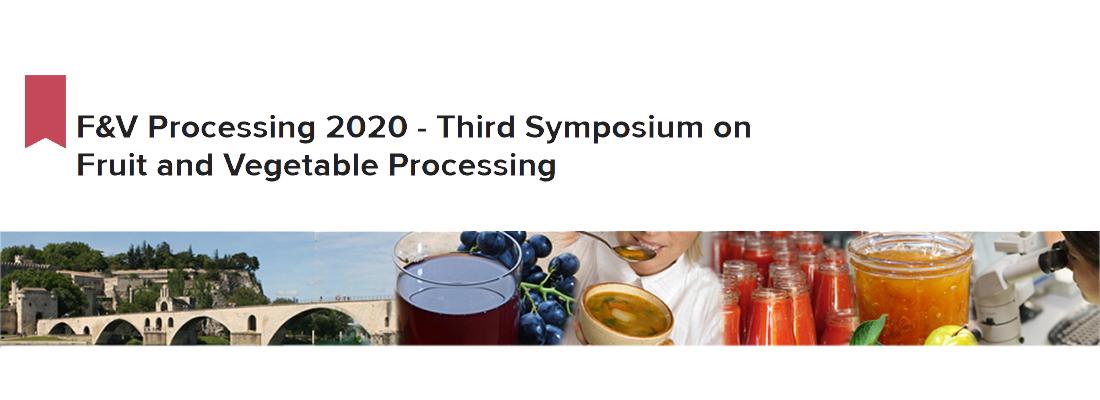24 26 November 2020 Status Ended
Avignon
Fruit & Vegetable Processing 2020

Five major topics
1 - Processing and reactivity of F&V
- In minimal, traditional or novel food processing (heating, drying, fermentation, non-conventional innovative physical processes, and combinations)
- Changes undergone at different scales (macroscopic, microscopic, and molecular level) as a result of processing
- Changes in nutrients, texture, colour, flavour, sensory attributes
- Linking quality of fresh F&V to quality of processed products
- Tissue structure and/or enzyme in relation to quality of processed F&V
2 - Integrated approaches for the quality of F&V aimed at processing
- Quantification, assessment and optimisation of food quality along the chain by food actors (domestic preparation, farm processing, catering, SMEs, major companies)
- Efficient, good manufacturing practices
- Development of non-invasive tools for quality control (innovative and efficient probes, spectral analysis, NIR, MIR)
3 - Food systems and sustainability of F&V processing
- Trends in consumption of processed F&V
- New products and processing, and consumer acceptability
- Organic F&V processing concepts and their consequences
- Circular economy in the F&V processing chain, rational use of co-products
- What place for F&V processing in territorial food systems?
- Clean label and naturalness in F&V products
- Valorisation of by-products. Reduction of wastes and spoilage
- Bio-based materials from processed F&V
4 - Specific challenges of F&V processing in the Southern countries
- Changes in food value chains and consequences on the offer of processed F&V in Southern countries
- Integration of processing in traditional as well as in evolving food chains
- Processed F&V to lower the burden of malnutrition in Southern countries?
5 - Identification, characterization and control of microbial and chemical risks in the production chain of processed F&V
- Diversity of microbial communities on F&V aimed at processing
- Inactivation and control of pathogenic and spoilage microorganisms and their toxins
- Neoformed compounds during F&V processing
- Environmental contaminants, pesticide residues and migration from packaging
